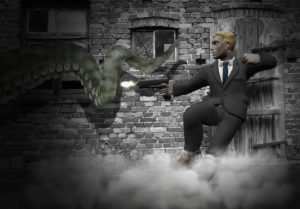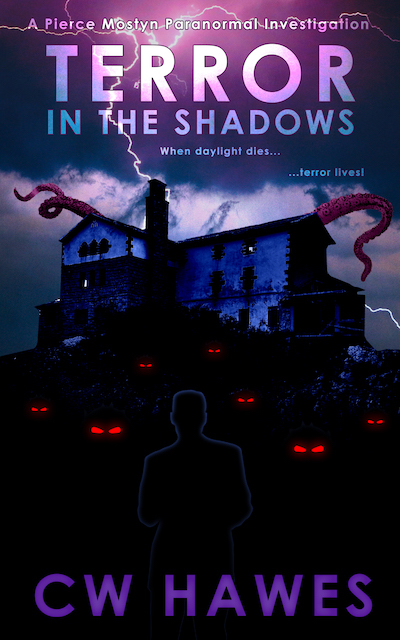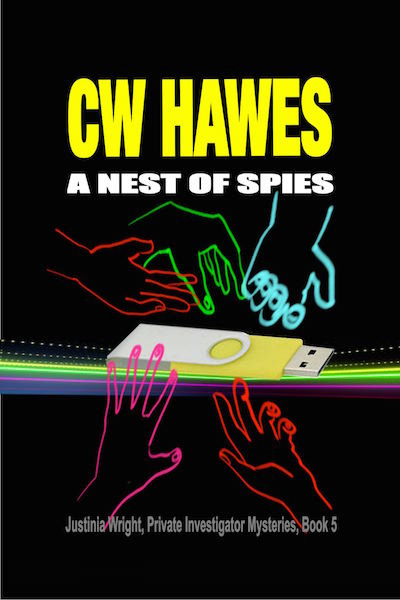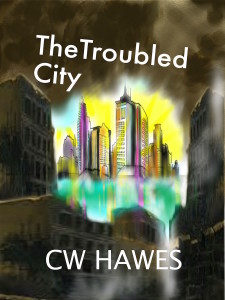Rand Hart began life in the late 20th century as a real estate agent turned professional gambler who wins an Atlantic-class yacht in a poker game and takes to traveling the world on his new acquisition. Rand’s predecessor also did the occasional “odd job” for extra cash when Lady Luck didn’t seem to be by his side and his considerable skill couldn’t make up for her abandonment.
However, that character sits in a drawer. The novel is half completed. Someday, since my other great love (aside from airships) is the sailing ship, I may pull out that uncompleted manuscript and give Rand’s predecessor life. After all who doesn’t like a good sea yarn? Just think of Moby Dick without all those ghastly chapters on whales. I love whales, but really — all that biology in a novel?
My wonderful sea yarn is around 30 years old. Well, the half of it I actually wrote. One day, I was thinking of that unfinished manuscript and said to myself, Why not set the whole thing in the ‘30s with airships and make it dieselpunk? Why not, indeed? And thus Rand Hart was born.
Rand Hart and the Pajama Putsch is now available for pre-order purchase at Amazon, Apple, Kobo, and through the Tolino (Germany’s answer to the Kindle) network.
Let’s take another look at that wonderful cover and let’s sample chapter two. Aye, there be flamingoes here!
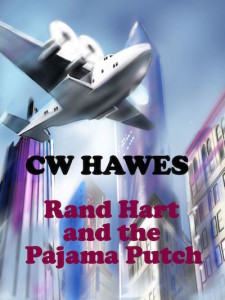
Chapter 2: Milly
Friday, 6 May 1938
Coconut Grove
Miami, Florida
When Hart checked at the ticket counter in Miami, he discovered the Pan Am flight he wanted didn’t take off until eight the next morning. He bought a ticket for one of the five remaining seats and then left the terminal to find a cab. Two were waiting. The drivers standing on the curb by their vehicles. A big, white General sedan and a brand new, elegant, if old-fashioned, Checker. Hart picked the Checker.
“Where to, Pal?”
“The hotel closest to the Pan Am seaplane terminal.”
“Can do.”
The cabbie took Hart’s suitcase and put it in the trunk, while Hart got in the back seat. The fellow then got behind the wheel and the cab was rolling.
Within minutes, Hart found himself, suitcase in hand, standing before the entrance to The Mango House Hotel. The place was a three story stucco building painted a hideous shade of pink. Hart thought a moment and decided he’d never seen a mango that color and wondered why the owners hadn’t called the place the Flamingo Palace. Oh, well. As long as the bed was comfortable and the water hot, it probably didn’t matter what the name or the color was.
He walked in and requested a room. The clerk told him they had one and, after Hart signed for it, gave him the key. Room 305.
“Any place close by I can get a meal and something to drink?” Hart asked.
“The Highball, three doors down is a decent bar and at the corner,” the clerk pointed in the opposite direction, “Jimmy’s is a good place to get a meal.”
“Thanks,” Hart replied and took the stairs to his room. He wasn’t overly fond of elevators.
The stairwell opened onto a hall with eight rooms, four rooms on either side, and a bathroom at the end of the hall.
“Ten dollars a night and no private bath,” he muttered while walking down the hall looking for his room. He found it two doors from the bathroom on his right. After unlocking and opening the door, he set his suitcase inside, walked down to the bathroom and took a look around. “Clean enough,” he said. Then returned to his room, which was more or less your standard hotel room. A double bed, chest of drawers, pitcher and wash basin, wardrobe, chair, and lamp. Nothing fancy. Ten bucks. He shook his head.
A look at his watch told him the lunch crowd would probably be at the diner in another hour. He felt tired. Two nights of little sleep were explanation enough. And even though the Curtiss had sleeper berths, Hart had mostly tossed and turned on his flight to Miami, via Atlanta. He wanted nothing more than to take a long nap, but he had too much money on him and needed to go to the bank. He also needed to pick up Brazilian currency.
He left his room, locked the door, and went back downstairs to the lobby. He asked the clerk to telephone for a cab and then took a seat and waited. The chair was comfy and he began to doze off, when the clerk woke him.
“Your taxi has arrived, sir.”
“Thanks.”
Hart made his way out to the curb, told the cabbie what he wanted, and got in when the fellow told him he could take him to any bank he wanted.
An hour later, Hart was back in his room. He untied his shoes and took them off. He slipped out of his suit and lay on the bed. A nap and a bath afterwards, then he’d get a bite of supper.
He woke with a start. The room was dark. What time was it? He groped for the lamp, found the switch, and turned it on. He looked at his watch. Half-past seven. He sat on the edge of the bed. Yeah, he thought, a bath, something to eat, and a drink. Come back here, get some sleep, and then the flight. He reached for his suit coat. From one of the pockets, he took out the Briggs mixture and a pack of cigarette papers. He rolled four cigarettes. Three he put on the dresser, the fourth in his mouth and lit it.
Hart opened his suitcase, found a fresh shirt, and taking his clothes and shaving kit with him, padded down to the bathroom. The little box was still in the inside suit coat pocket and he wanted it to stay there. He didn’t like the thought of someone coming to collect his thirty thousand deutsche marks should he not make the delivery. Then again, they’d have to find him. But if von Osler had truly been watching him, they’d probably find him.
His cigarette smoked out, he flipped the butt into the toilet, and turned on the faucets for the tub. The water was nice and hot. Might make the place worth ten bucks after all, he thought.
When the tub was half full, he got in, took a minute to enjoy the water, and then washed. When done, he rinsed and toweled off. After shaving, he dressed, and returned to his room. He put the three cigarettes into his suit coat pocket, looked out the window at a row of palm trees, illuminated by a matching row of lights, and left his room, locking the door behind him.
Down the stairs, across the lobby, and out the front door. On the sidewalk, he looked up and down the street and set off for Jimmy’s. He patted the suit coat, felt the box, and relaxed.
The diner occupied the corner, making it L-shaped, and had large glass windows. Hart supposed the idea was so passersby could see inside and decide to satisfy the rumblings in their stomachs there instead of somewhere else. The place didn’t look busy and it didn’t look any different than a hundred others up and down the east coast. He entered. There were plenty of seats at the counter and he took one.
A tired looking waitress came over to him.
“Long day?” he asked.
“Yeah. What would ya like?”
“What’s good?”
She looked at him. Her eyes taking in everything visible above the counter. “The chili ain’t bad and the hamburger’s decent.”
“Okay. A bowl of chili and a hamburger.”
“Want cheese on the burger?”
Hart thought a moment. “Sure. Cost extra?”
“Yeah, a nickel.”
“Sure. What the hell? Only live once.”
She smiled. A pretty smile. And when she walked away she put a little swing in her porch.
Not bad looking, he thought. Probably thirty-something, he guessed. She wore her chestnut hair in a Lupe Velez cut: a short curly mop, bangs covering one side of her face. Hart thought she looked attractive with her hair like that. Add some lipstick and she’d look pretty good on a guy’s arm.
In a moment, she returned with a glass of water. “Want coffee, Mister?”
“Maybe later. Have any pie?”
“The peach is okay. Owner’s wife cans the peaches herself.”
He nodded. “Maybe later.”
“Sure.” She walked away. The porch was still swinging.
Hart looked around. Down at the one end of the counter were two older men. Three booths were occupied. One by a woman, two by couples. Otherwise, the place was empty.
The waitress was back with his chili. “Your cheeseburger will be ready in a few minutes.”
“Thanks.”
She lingered. Hart took a spoonful of chili and conveyed it to his mouth.
“What d’ya think?”
He nodded. “Good.”
“Thought ya’d like it. Ya from around here?”
“No.”
“Kinda thought so. Never seen ya before.”
“Never been here before.”
“Miami?”
“No. Here. This place.”
“I’m Milly and I’m glad you came in tonight.”
He smiled and she smiled back.
“Someone wants some more coffee. I’ll be back…” She waited.
“Rand.”
“I’ll be back, Rand.”
Her voice was pleasant. Mellow with a touch of cane syrup.
He spooned chili and in a bit she was back with the burger.
“I gave ya an extra pickle. On me.”
“Thanks, Milly.”
Hart took a bite of the cheeseburger and nodded.
“They’re pretty good,” Milly said. “So what are ya doing in town, Rand?”
“Catching a flight to Rio.”
“Oh, gosh. That’s exciting. I’ve never been anywhere. What’s in Rio?”
“A job.”
“A job. In Rio.” Milly sighed.
Hart shrugged. “Sounds exciting. Doesn’t mean it is.”
“Maybe. At this point, I think Cleveland sounds exciting.”
Hart laughed. “Maybe it is. Never been there.”
One of Milly’s fingers touched his hand. “Maybe we could go there and see. Ya know. When ya get back from Rio.”
Hart looked at her and their eyes met. “Yeah,” he said. “Maybe. When I get back from Rio.”
“Say, I get off at ten. Wanna go somewhere?”
“Sure, Milly. I’d like that.” Hart looked at his watch. “Just might be done with my pie and coffee by then.”
She smiled. Yep, Hart thought, that was one hell of a pretty smile.
***
At ten, Milly and Hart left the diner, arm in arm, and walked down the street to the Highball. They got a table far enough away from the swing band so they could hear each other talk and yet enjoy the music. Hart went to the bar and ordered a gin rickey for himself and a Bee’s Knees for Milly. He brought the drinks back to the table.
“Bee’s Knees. That’s an old Prohibition drink to cover the taste of bad booze,” Hart said.
“That so? Taste’s pretty good, if ya ask me. Here.”
Hart took the glass, turned it, and drank from where Milly had taken a sip. She smiled at the gesture.
“Not bad,” Hart said. “Not bad at all.”
“Told ya. So, Rand, what d’ya do for a livin’?”
“Gamble.”
“Are ya serious?”
Hart nodded and took a sip of his drink.
“I never met a gambler before.”
“Sure you have. You look at one every time you look in the mirror.”
“What d’ya mean? I’m a waitress.”
“Life’s a gamble. It’s one great big crapshoot. Makes everyone of us who eats and breathes a gambler.”
“Oh. Ya go to college or somethin’?”
“Something.”
“So tell me, Mr Gambler, who went to somethin’, what’s it like in Rio?”
Hart spent the next hour telling her about Rio, the Riviera, Italy, Germany, France, and Britain. Then he asked her to tell him about her life.
“I’ve done nothin’ and been nowhere,” Milly replied.
“Tell me about waitressing. I’ve never waited tables. What’s it like?”
“Well, if ya really wanna know…”
Hart nodded.
Milly told him. Whereas Hart had told her of the world at large, she told him about her customers, her neighbors, her best friend, Mary, the grocery store owner, and her mother. Hart learned of the everyday world that wasn’t much different than the neighborhood world he grew up in. A world where having five pennies to spend on candy was a very big deal. Her stories made him homesick.
At last she asked him, “Where ya stayin’, Rand?”
He looked at her. She was not beautiful. She was, though, easy on the eyes. “I can’t stay.”
“I know.” Her eyes told him she, too, was lonely.
“The Mango House.”
“I don’t have to go home just yet.”
“Okay.” He stood, put a ten on the table, and held out his hand. Milly took it and, holding hands, they left the bar.
Once on the street, she let go of his hand, and slipped her arm around his waist. He put his arm around her and pulled her close to him. He leaned down and she lifted her face to receive his kiss.
They entered the hotel. The night clerk only gave them the briefest of glances. They crossed the lobby and, making an exception, Hart guided Milly to the elevator. When the doors closed, he kissed her and she kissed him back.
Hart thought of spending some time in Miami once he got back from Rio. Maybe go to Cleveland with Milly. The elevator doors opened. Their arms around each other, they slowly walked down the hall, kissing the entire way. When they reached Rand’s room, they stopped kissing and let go of each other so he could get his key and unlock the door. He turned the knob, pushed the door open, and turned on the light. His room looked as though a bomb had gone off in it.
Share This!

